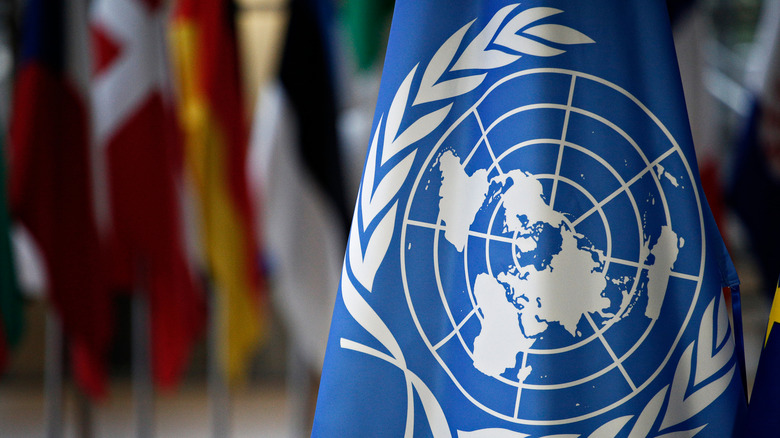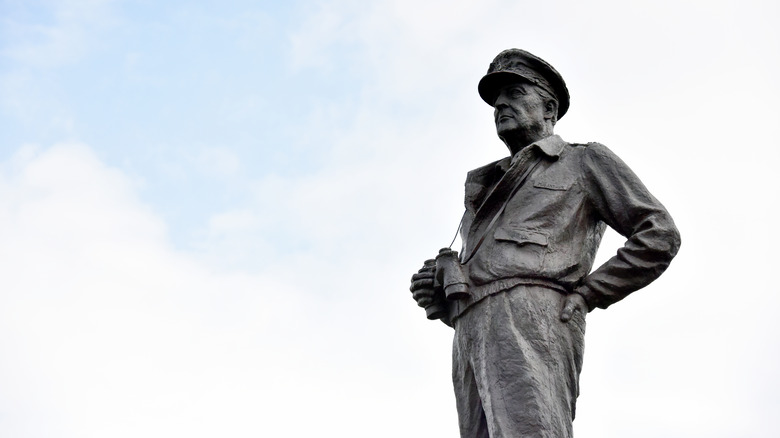How The United Nations Played A Major Role In The Korean War
While the Korean War has had (the past participle due to the fact that it technically never ended) a huge impact on the modern world as we know it, it is often called the "forgotten war." Admittedly, with a military history like that of the United States, it does get a bit cumbersome to keep track of them all after a while. As a people, we've largely grown comfortable with the idea that our country is constantly at war, and the Korean War is a big reason why. That's because it was the first time a U.S. president bypassed Congress to wage one. Congress hasn't fulfilled its Constitutional duty of declaring war since World War II, and presidents have been coming up with clever ways to do this ever since.
So, beyond what we may or may not remember from being forced to watch M*A*S*H with our dads, our general knowledge of what happened there and how it affected the decades to come is rather meager. The main players are fairly well known: North Korea and China on one side, South Korea and the United States on the other. However, these were not the only countries involved in the conflict.
The United Nations sent troops from more than a dozen countries
While Russia-backed North Korea had the help of the Chinese military, there were quite a few more contenders on the other side. Formed in 1945 after the end of World War II, the United Nations were involved in the Korean War from the start. On June 25, 1950, the day North Korea invaded the South Korean capital of Seoul, the UN Security Council officially demanded that the country back down. According to History.com, North Korea did not comply, so the Security Council took further action, drafting a resolution requesting member states to provide military assistance to South Korea.
At the head of this force, they installed U.S. General Douglas MacArthur — of World War II fame (and the statue above) — and 15 countries came to South Korea's aid. Soldiers from France, the United Kingdom, Canada, Australia, Ethiopia, and Turkey, among others, fought alongside South Korean and U.S. troops. The Soviet Union could have vetoed the creation of such a coalition in the Security Council, but it was boycotting the meetings.
As The Independent Review notes, General MacArthur would infamously go on to advocate for straight up nuclear war in Korea — making him the probable inspiration for the nuke-crazy General Buck Turgidson in Stanley Kubrick's hit 1964 black comedy "Dr. Strangelove or: How I Learned to Stop Worrying and Love the Bomb." He ended up getting fired by President Truman for subordination after having a note read on the House floor advocating "all-out measures" in the conflict with North Korea.

